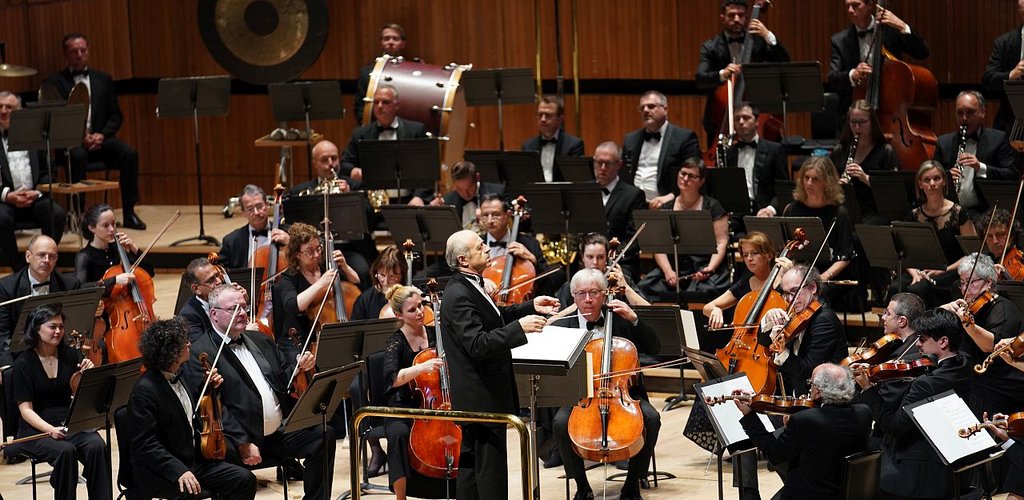★★★★★
The proof was in the silence, held at the end by the conductor Ivan Fischer as he oh-so-slowly lowered his left hand after the last dying notes faded away. There was a collective stilled hush in the Royal Festival Hall, not only as everyone deserves a moment of quiet after hearing Mahler’s tumultuous Ninth Symphony, but also because we needed time to appreciate the remarkable playing of the Budapest Festival Orchestra. It was as if no one wanted to break the spell of the music, and everyone wanted to linger a little longer in the place we’d arrived at, on the edge of life itself.
This performance showed Fischer’s Hungarian orchestra at its lucid best, making music with great honesty, whole-heartedness and virtuosity. If Mahler’s First Symphony bursts with the freshness of spring and youth, the Ninth, his final complete symphony, is imbued with the wisdom of age, the bitter experience of heartbreak, the acceptance of death. Some conductors match its glut of emotion with a hyper-intense sound, relishing Mahler’s nervy traumas, but Fischer gives us something different. There’s an unsentimental straightforwardness, a natural ease to his approach that somehow makes it possible, as a listener, to take in the miraculous detail of this 90-minute symphony.
One could point to any of its four movements and exclaim over the flowing tempos, unerring pacing and exquisite phrasing, how Fischer moved between surface chatter and profound depths, cataclysmic breakthroughs and hushed reflections. Somehow, he took us right inside the symphony, using sound to immerse us in a parallel world. But what was equally remarkable was the sheer beauty and character of the orchestral playing, from the warmth of the massed string sound to the sublime horn solo that seemed to float in from another realm. The standing ovation was fully deserved; this Mahler was five stars all the way.

